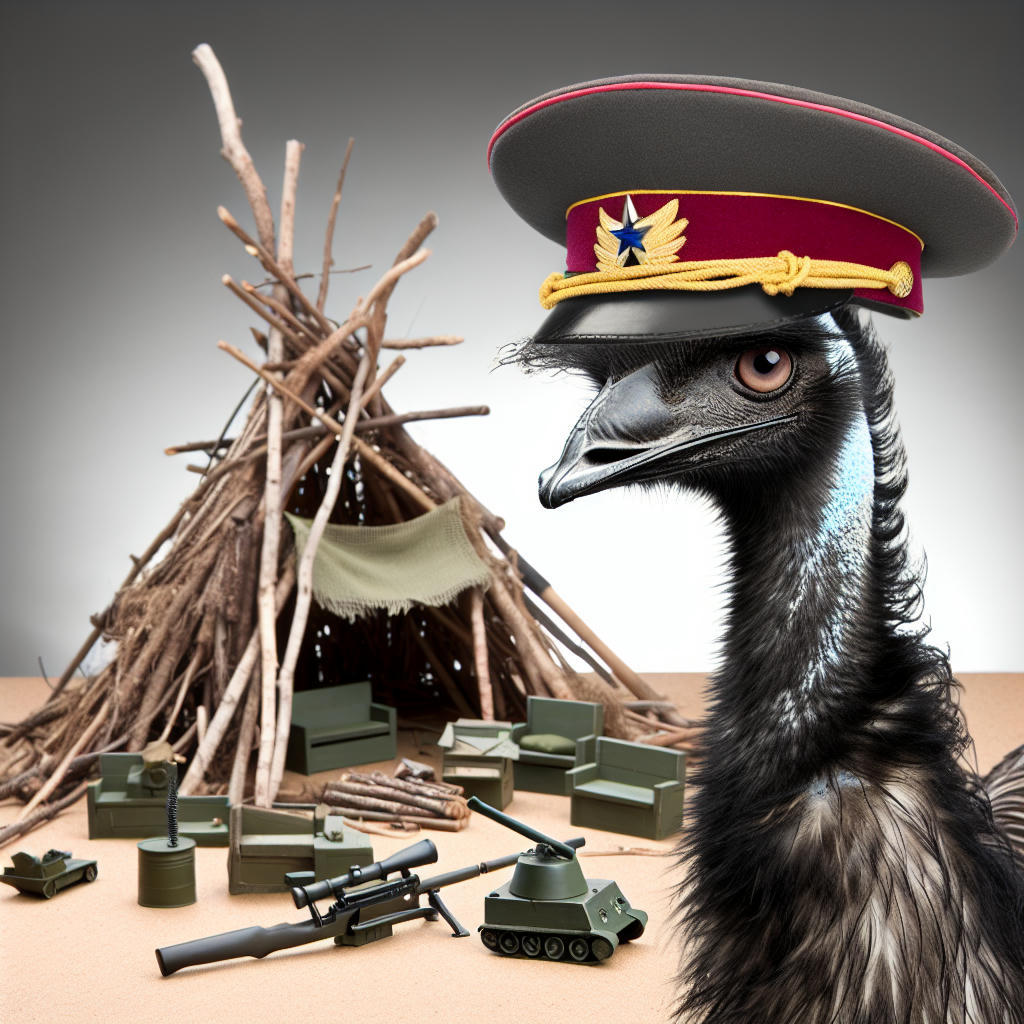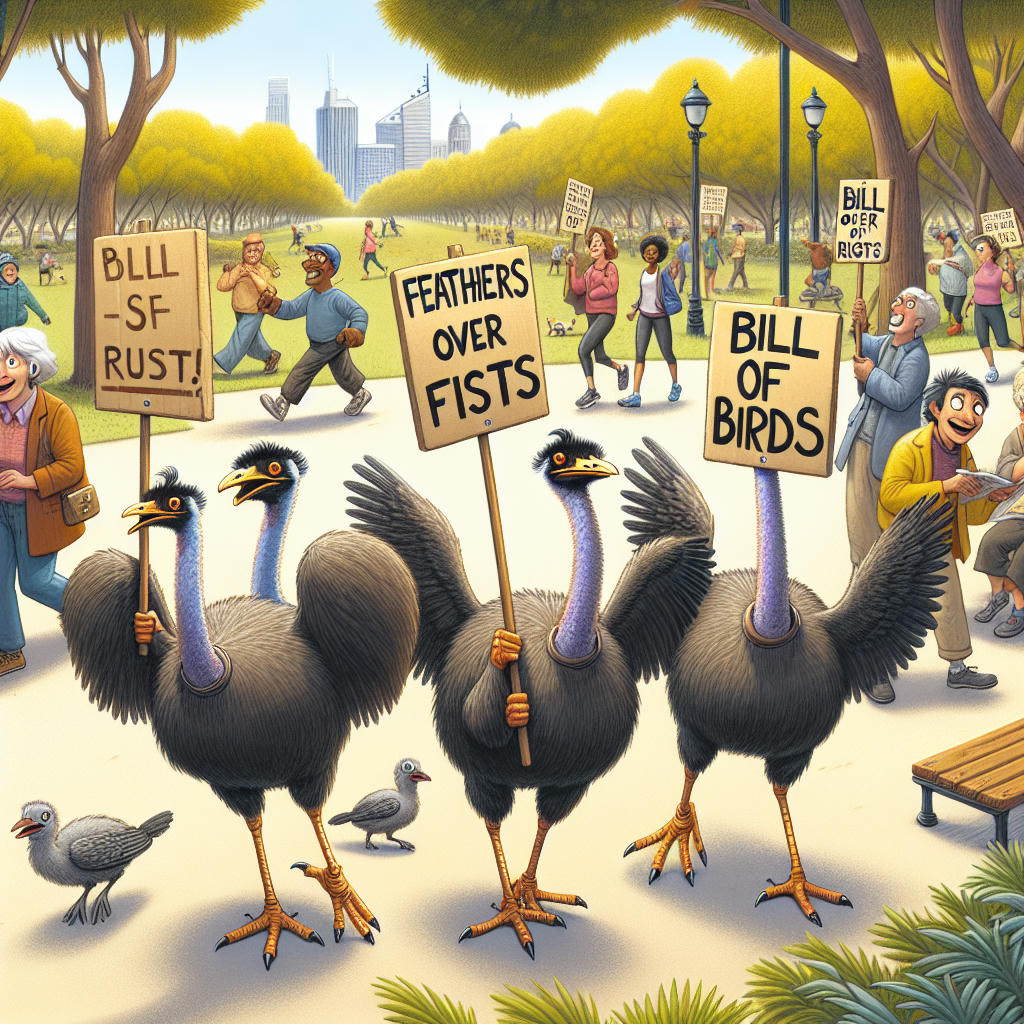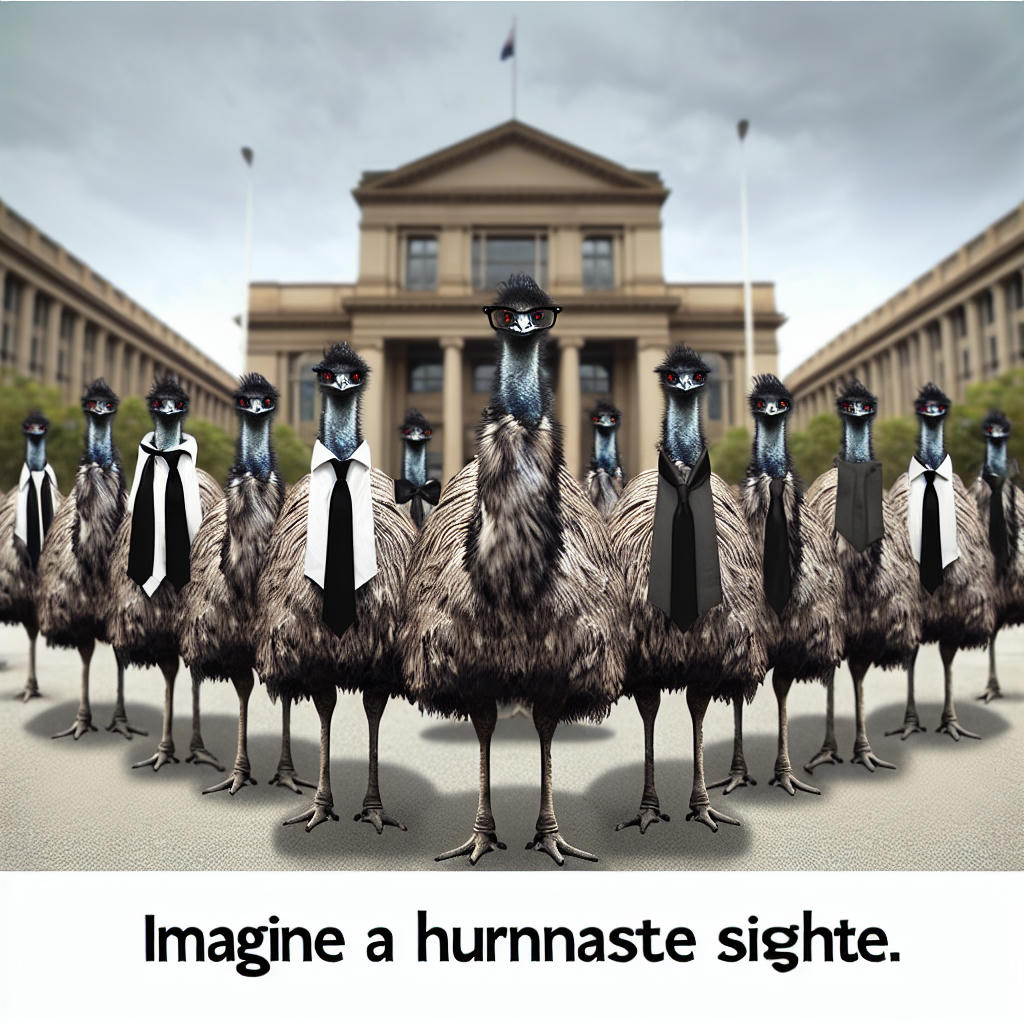It was a day like any other in the sleepy town of Springfield, until the skies darkened, and a peculiar sound filled the air. Initially dismissed as an impending storm, it was soon realized that this was no ordinary meteorological phenomenon. Instead, Springfield found itself at the heart of an entirely different kind of tempest: The Great Emu Uprising.
The first sign of unrest was when the local bakery reported missing loaves of bread, followed promptly by a disturbance at the feather pillow factory. Confounded, the townspeople searched for answers, only to discover a trail of breadcrumbs (quite literally) leading to the cul-de-sac where the emus resided.
To everyone's astonishment, the emus were not just gathering supplies; they were organizing. Under the leadership of 'General Feathers,' a particularly astute and charismatic emu, these avian settlers laid down their demands in a remarkably well-constructed nest-cum-command center. Top on their list: an official seat at City Hall and the right to vote for their own representatives.
Social media erupted with #EmuRevolution trending nationwide. Enthusiasts and skeptics alike watched in real-time as the emus employed guerrilla tactics, staging sit-ins at public parks and crafting expertly made signs that read “Feathers Over Fists” and “Bill of Rights, Not Bill of Birds.” The movement garnered both ridicule and admiration from humans, with some going as far as adopting emu-inspired fashion.
In a climactic standoff that no one could have anticipated, the emus, now fully organized and mobilized, confronted City Hall with a coherent and compelling argument for their inclusion in the civic process. With wit and eloquence, they presented their case, leaving the city council in a quandary: to laugh, to deride, or to actually consider their demands.
Ultimately, the resolution of this fowl affair took everyone by surprise. The City Council, in a moment of unprecedented whimsy and perhaps a touch of existential crisis, granted the emus ad hoc advisory roles within local government. Springfield became the first town in history to officially incorporate non-human representatives, setting a bizarre precedent that would be discussed and debated for generations to come.
Behind the humor of 'The Great Emu Uprising,' lies a profound commentary on political representation, community mobilization, and the extraordinary lengths to which beings, feathered or otherwise, will go to have their voices heard. In a world where the lines between satire and reality blur, Springfield's feathered citizens offer a quirky reminder that the quest for inclusion is universal, and sometimes, it takes a village—or an emu—to raise awareness about the importance of civic participation.




